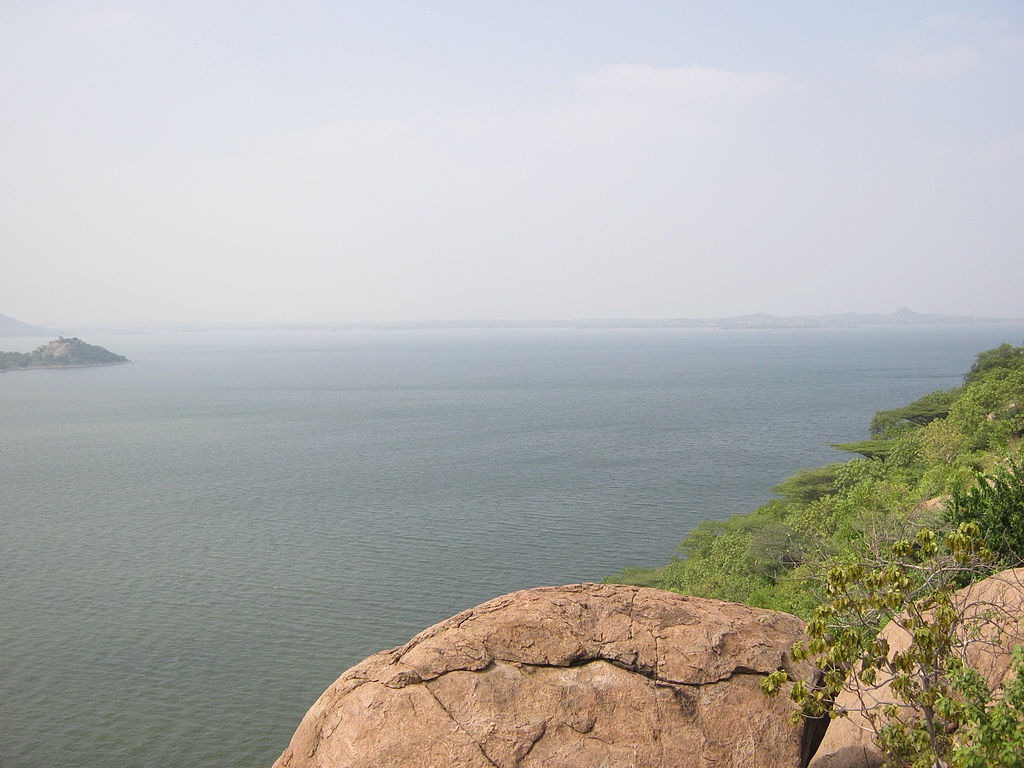
Though temporary, TN relishes a clean Cauvery amid lockdown

The nationwide lockdown due to COVID-19 outbreak has affected humans in many ways. But for nature, it has come as a great boon. Air, water and noise pollution levels have seen a decrease with the shutting of industries. This has reflected well on many rivers and one of them is Cauvery.
Although both Karnataka and Tamil Nadu share Cauvery, the lower riparian state is heavily dependent on the river. Cauvery not only serves as a source of farming, but also to many drinking water schemes in Tamil Nadu that are based on the river and its tributaries.
A clean Cauvery has put smiles on the faces of many in the state. But some are worried about some industries — manufacturing masks and pharmaceuticals — releasing their effluents into the river.
Related News: Karnataka farmers in distress over shutdown impact on supply-chain
Currently, the river and its tributaries are much better than before, says Kamal Ram, Nagapattinam district secretary, Tamil Nadu Cauvery Farmers’ Association. He cites the example of Harichandra river, which is a tributary of Cauvery.
Besides paddy cultivation, Nagapattinam is known for aquaculture and has around 500 shrimp farms. Generally, the farms release salt water into Harichandra river. But due to the lockdown, the farms are shut and the river looks clear and odourless, he says.
Another river, Vellar, flows through Cuddalore, a delta district which was recently included in Protected Agricultural Zone. The river too has seen a decline in pollution levels, but effluents from nearby factories seem to have found their way into the river, says Arul Selvam, an environmentalist in Puducherry.
Related News: For Gondi tribe of Tamil Nadu, lockdown is a 21-day fight with hunger
Some firms in Cuddalore are operating with minimal staff, saying they had obtained special permission from the government to manufacture masks and pharmaceuticals, he says.
Fishers in the region have borne the brunt. The government has relaxed restrictions for traditional fishers in Cuddalore and some of them fish in Vellar river, says Selvam. Of late, the fishers have begun complaining of itchiness, which they had not done before. This raises the doubt further, says Selvam.
However, Cauvery and its tributaries along Karur are clear, says Piyush Manush, activist and founder of Salem Citizens Forum. When the river flows into the Mettur dam in Salem, it carries loads of pollutants, he says.
Thermal power plants, paper mills, leather and textile industries, dying units and domestic wastes all are let into the river and its tributaries along Erode and Trichy districts. It’s hard to find such a level of pollution in any other river across the country, he says.
Related News: It’s more than 21 days for fishers as ban on venturing into sea nears
Seeing a clean Cauvery makes Manush happy, but he feels that the happiness is only temporary. Thirumanimuthaaru, originating from hills in Salem, flows into Cauvery. As it was polluted heavily, Manush filed a case with the National Green Tribunal.
“The commissioner of Salem Corporation has ensured that the river would be clear from April 23. But after the lockdown, it will get polluted,” says Manush. The government has diluted the hill-area development plans that have resulted in the decrease of the level of Thirumanimuthaaru.
Many tributaries of Cauvery have dried up as Karnataka failed to release Tamil Nadu’s share of water this year, says Kumaran, a geologist and a stand-up paddler. However, the lockdown led to the remaining water in Kollidam, a tributary in Trichy, and the backwaters in Chidambaram turning clear, he says.


